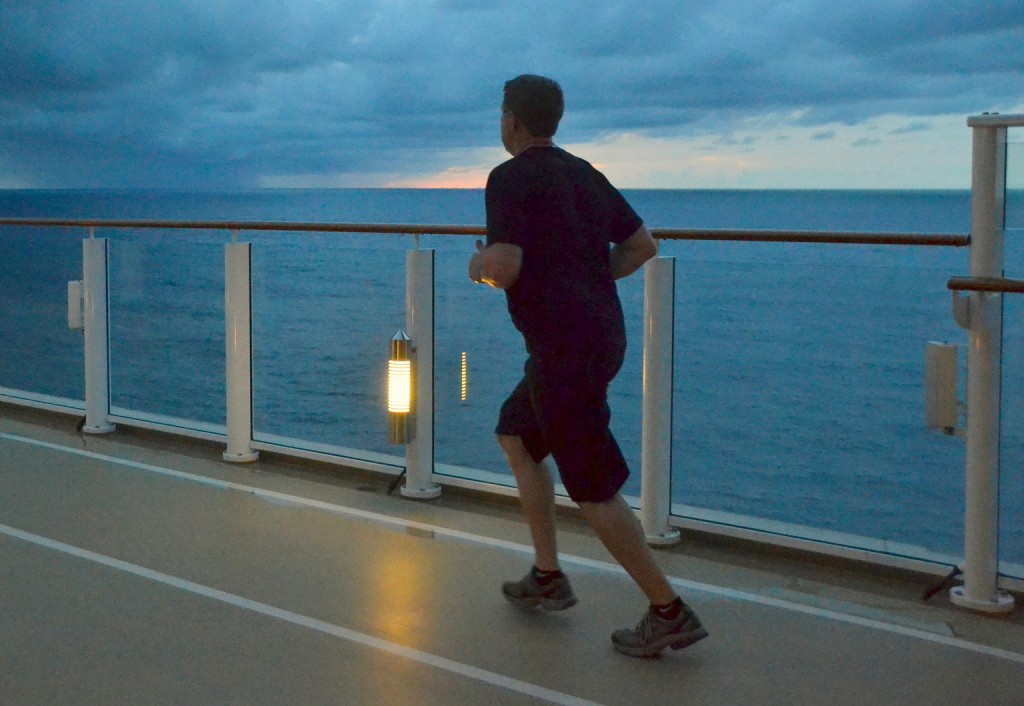Best Times To Exercise When Taking Blood Pressure Medication
Get StartedOr call 1-877-888-3091
Love Your Life.
Start Feeling Better Now

Take Caution with Morning Exercise

Photo Credit: Robert Pittman, via Flickr Creative Commons
How do you ensure early morning exercise is both safe and successful in your fitness routine?
Morning exercise, for many people, can be a consistent and positive way to start the day. It has many benefits such as eliminating excuses for skipping your workout later in the day and improving your mood and energy by getting endorphins circulating throughout your body. But it's not necessarily the best time of day to exercise. (See Ornish Living article, Not an Early Bird? Morning Exercise Isn't Always the Best.) For some people, early morning exercise can even present several potential risks.
If you have a history of bypass surgery or heart attack, early morning exercise should be done cautiously.
Morning exercise is defined as early hours such as four and five o'clock or "immediately after waking." With that in mind, here are a few scenarios in which to use caution in morning exercise.
Coronary Artery Disease
If you have a history of CAD, coronary stents, bypass surgery or heart attack, early morning exercise should be done cautiously. The amount of research on early morning exercise is small, but some studies cite increased risk of coronary events such as heart attacks and sudden death when exercising first thing after waking.
Allowing your body extra time to warm up prior to engaging in your full exercise routine will lower your risk. Also remember that your body has been inactive all night, so allow a proper amount of time to slowly elevate your heart rate, blood pressure and body temperature.
Diabetes
If you have diabetes, early morning exercise should be done with caution. This is because during the night, you don't consume any calories. Exercise has an insulin-like effect on the body, so if you wake in the morning and begin to exercise without eating, you stand an increased risk of exercise-induced hypoglycemia. If you do choose to exercise in the early morning, do so after you've checked your blood sugar and also eaten a small snack to ensure your blood sugar remains at an appropriate level while you exercise.
People with Type 1 diabetes are more likely to see significant blood sugar changes with exercise as compared to people with Type 2 diabetes. Our recommendations in the Ornish Lifestyle Medicine program are for blood sugar readings to be above 100 mg/dl prior to beginning exercise to give a cushion as your blood sugar drops slowly during your workout. We would also recommend monitoring for symptoms of low blood sugar as you exercise and treat low readings or symptoms as directed.
Cardiovascular Medications
If you take medications for hypertension (high blood pressure), angina (chest pain), or other heart conditions, you may want to exercise later in the day after you have taken your morning medication. The effect of most medications weakens over time so if you take morning medications for these conditions, and then exercise before your next morning dose, the medication may not be as effective. This could make you more vulnerable to unwanted changes in heart rate, blood pressure, angina, and even heart rhythm. A combination of these changes can lead to exercise related complications that you can avoid.
The next time you visit your doctor, discuss your interest in morning exercise and the timing of your medications. Your physician may be able to make changes to your medications to support morning exercise.
Inactivity
Science tells us that in most cases, the benefits of exercise outweigh the risks. An exception can be with people who are very inactive. If this is your situation, only begin an exercise program with proper screening and supervision because you have an elevated risk of cardiovascular complication when exercising.
You may want to exercise later in the day once you have been awake and alert for an hour or more. You should also limit the intensity of your exercise, staying away from high intensity or overly long workouts. Both of these will increase your chance of excessive fatigue, injuries due to overuse, and cardiovascular complications.
Starting a fitness routines for those who are inactive or out of shape should be a gradual process, especially in the early stages where we focus on consistency and increasing exercise time as tolerated.
How do you ensure early morning exercise is both safe and successful in your fitness routine?
Source: https://www.ornish.com/zine/take-caution-morning-exercise/
Posted by: benwelllamontees.blogspot.com
Posting Komentar untuk "Best Times To Exercise When Taking Blood Pressure Medication"